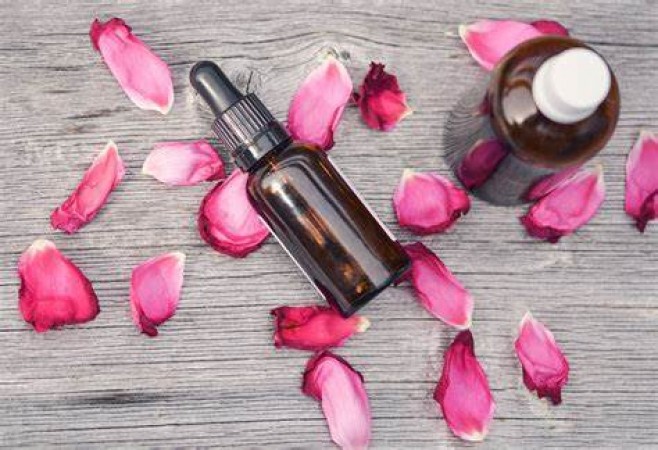
Having healthy and lustrous hair is something we all desire, and incorporating hair oils into our hair care routine can be a game-changer. Hair oils have been used for centuries to nourish, protect, and enhance the beauty of our tresses. However, with the variety of hair oils available in the market, choosing the right one and using it effectively can be a daunting task. In this article, we will explore the benefits of using hair oils, how to choose the right oil for your hair type, and different methods of incorporating them into your hair care routine.
Understanding Hair Oils:
What Are Hair Oils?
Hair oils are natural or synthetic oils that are specially formulated to improve the overall health of your hair. They are rich in essential nutrients, fatty acids, and antioxidants that provide various benefits to your hair and scalp.
Types of Hair Oils:
There are several types of hair oils available, each catering to specific hair concerns. Some common hair oils include coconut oil, argan oil, jojoba oil, almond oil, and castor oil.
Benefits of Using Hair Oils:
Using hair oils regularly can nourish your hair, improve its texture, and promote overall hair health. They can also provide benefits such as reduced hair fall, increased shine, and enhanced hair growth.
Choosing the Right Hair Oil for Your Hair Type:
Different hair types have different needs, and choosing the right hair oil is crucial to achieve the best results.
Oils for Dry Hair:
If you have dry and frizzy hair, oils like coconut oil and almond oil are excellent choices. They deeply moisturize the hair strands, leaving them soft and manageable.
Oils for Oily Hair:
For oily hair, lighter oils like jojoba oil or grapeseed oil are more suitable. These oils provide the necessary nourishment without weighing down the hair.
Oils for Normal Hair:
Those with normal hair can benefit from a wide range of oils, including argan oil, which adds shine and strengthens the hair.
How to Incorporate Hair Oils into Your Hair Care Routine:
Pre-Shampoo Treatment:
Before shampooing your hair, apply a generous amount of hair oil from the roots to the tips. This pre-shampoo treatment helps protect the hair from damage caused by harsh shampoos.
Overnight Oil Treatment:
For deep nourishment, consider doing an overnight oil treatment. Massage your scalp and hair with your preferred oil and leave it on overnight. Wash it off in the morning for soft and silky hair.
Hot Oil Massage:
A hot oil massage is an excellent way to relax and provide intense nourishment to your hair. Warm the oil of your choice and gently massage it into your scalp. Wrap your hair in a warm towel and leave it on for 30 minutes before washing.
Leave-In Conditioner:
Using a few drops of hair oil as a leave-in conditioner can help tame frizz and provide extra shine to your hair throughout the day.
Tips for Applying Hair Oils Effectively:
Scalp Massage Techniques:
When applying hair oil, take the time to massage your scalp gently. Massaging improves blood circulation, promoting hair growth and relaxation.
Proper Distribution of Oil:
Ensure even distribution of oil throughout your hair. Pay attention to the ends, as they tend to be drier and more prone to damage.
Avoiding Greasiness:
Using too much oil can make your hair greasy. Start with a small amount and gradually increase as needed.
Frequency of Using Hair Oils:
The frequency of using hair oils depends on your hair's condition and needs. For dry hair, use oils at least twice a week, while for normal hair, once a week should suffice.
Common Mistakes to Avoid:
Using Excessive Oil:
Using too much hair oil can lead to product buildup and weigh down your hair. Stick to the recommended amount.
Not Washing Off Properly:
Make sure to wash off the hair oil thoroughly during shampooing to avoid greasiness.
DIY Hair Oil Blends:
Creating your hair oil blends allows you to customize the mix according to your specific hair needs.
Nourishing Blend:
Mix coconut oil, almond oil, and a few drops of lavender essential oil for a nourishing and relaxing hair oil.
Strengthening Blend:
Combine castor oil, argan oil, and a few drops of rosemary essential oil for a strengthening hair oil.
Dandruff Control Blend:
Mix tea tree oil, jojoba oil, and a few drops of lemon essential oil to combat dandruff.
Addressing Common Hair Problems with Hair Oils:
Dry and Frizzy Hair:
Using hair oils regularly can help moisturize dry and frizzy hair, making it more manageable and reducing breakage.
Hair Fall and Breakage:
Hair oils strengthen the hair shaft, reducing hair fall and breakage.
Combining Hair Oils with Other Hair Care Products:
You can enhance the effectiveness of hair oils by using them in conjunction with other hair care products.
Shampoos and Conditioners:
Choose sulfate-free shampoos and conditioners to maintain the benefits of the hair oils.
Serums and Styling Products:
Using hair oils as a base for serums and styling products can add shine and protect your hair from heat damage.
The Impact of Hair Oils on Hair Growth:
Regular use of hair oils can improve blood circulation to the scalp, stimulating hair growth.
Debunking Hair Oil Myths:
Hair Oils Cause Hair Fall:
Hair oils, when used correctly, do not cause hair fall. They promote hair health and reduce hair fall.
Oily Scalp Should Avoid Oils:
Using the right hair oil and applying it to the hair strands, rather than the scalp, can be beneficial for those with oily scalps.
Incorporating hair oils into your hair care routine is a simple and effective way to achieve healthy and beautiful hair. By understanding your hair type and its specific needs, you can choose the right hair oil and utilize it through various techniques such as pre-shampoo treatments, overnight treatments, and hot oil massages. Remember to apply the oil properly, avoid common mistakes, and use DIY blends to cater to your hair's unique requirements.
How to Maintain and Extend the Life of Hair Extensions